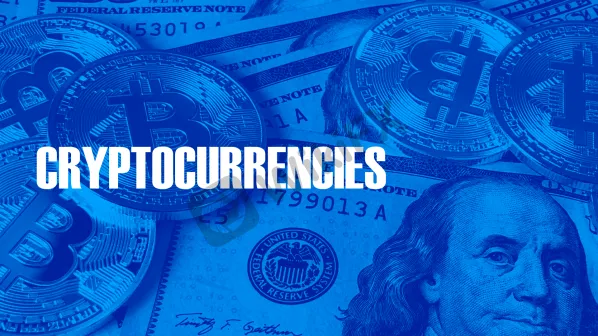
U.S. stocks closed higher on Friday, with the Dow up 700.53 points, or 2.13%, to 33630.61; the Nasdaq rose 264.05 points, or 2.56%, to 10569.29; the S&P 500 rose 86.98 points, or 2.28%, to 33630.61; 3895.08 points. The three major U.S. stock indexes all recorded gains this week. The Dow rose 1.46% for the week, the S&P 500 rose 1.45%, and the Nasdaq rose 0.98%. U.S. non-farm payrolls beat expectations in December and the unemployment rate fell to 3.5%. Average hourly earnings rose 0.3% from the previous month, leading investors to bet that inflation would continue to cool.
Michael Arone, chief investment strategist at State Street Global Advisors, said: “All investors are concerned about is that the non-farm payrolls data shows that inflation is moving towards the Fed's target. Especially the average hourly wages show that inflation continues to cool, which makes them feel excited.”
Investors on Friday ushered in the closely watched non-farm payrolls report. The report showed that the number of non-farm payrolls in the United States increased by 223,000 in December. The market expected that figure to rise by 200,000. The previous reading was revised down to an increase of 256,000 from an increase of 263,000.
Wage inflation cooled significantly in December, with average hourly wages increasing by 0.3% month-on-month, lower than market expectations of 0.4%, and the revised value of the previous value was 0.4%; a year-on-year increase of 4.6%, also lower than market expectations of 5%, and the revised value in November 4.8%.
Analysts said the combination of strong non-farm payrolls data and slowing wage growth supported market expectations that the Fed's interest rate hikes may be nearing to end.

According to media reports, McDonald's (NYSE: MCD) CEO Chris Kempczinski announced in an internal letter on Friday that the company is planning structural restructuring and layoffs. they will also focus on accelerating expansion faster. Kempczinski said that layoffs are not a means to reduce expenses, but to help the company innovate faster and be more efficient, and the company will cut some projects in the future. Kempczinski also wrote that the company has not yet set a specific expansion figure and a specific layoff figure, but will finalize and start communicating layoffs before April 3.
The British government announced on January 6 that it signed a cooperation agreement with the German company BioNTech (NASDAQ: BNTX) to jointly test a series of vaccine products including customized mRNA cancer vaccines. BioNTech will set up a new research and development center in the UK, aiming to provide at least 10,000 patients with enrolled treatments from September 2023 to 2030.
On January 6, Tesla (NASDAQ: TSLA) Chinas official website showed that the price of the Model 3 rear-drive version was reduced by 36,000 yuan, and the price of the high-performance version was reduced by 20,000 yuan; The price of the version is reduced by 38,000 yuan. hit an all-time low in prices.
Shanghai Nio (NYSE: NIO) was entrusted to file a recall plan with the State Administration for Market Regulation. It is decided to recall some 2022 Weilai ET5 electric vehicles produced between September 7, 2022 and October 10, 2022, starting from January 6, 2023, a total of 997 vehicles.

Since the COVID-19 crash in March 2020, Bitcoin (BTC) prices and the general cryptocurrency market have been highly correlated with the stock market. Since then, macroeconomic news has been influencing Bitcoin, Ethereum, and other altcoins, and the monthly non-farm payrolls (NFP) release is one such important event.
Bitcoin price is struggling to overcome the resistance at $16,836, the highest volume level since Nov. 5. Interestingly, it also coincides with the midpoint of a larger range set by BTC, extending from $15,443 to $18,230.
As the relative strength index (RSI) has retreated from overbought territory, the chances of a bulls' comeback are slim. Also, strong NFP data will lead to a sell-off in BTC.
A break below the psychological $16,000 level could lead to a sweep of the same low at $15,443.
If the release of the NFP data leads to a sell-off followed by a quick build-up in buying pressure and a recovery bounce, then things could be bullish. If that happens, the RSI should bounce off the 50 midpoints.
In this case, Bitcoin price could bounce off the $16,624 support and trigger another rally towards $17,306 or even $18,401.

Gold surged more than 1 percent on Friday to hit a seven-month high, with U.S. Treasury yields and the dollar falling after U.S. economic data cemented expectations for a less hawkish Federal Reserve, with gold on track for a third straight weekly gain.
Spot gold jumped 1.9% to $1,867.18 an ounce, the highest since June 13 last year. Spot gold has risen about 2.1 percent so far this week, its biggest weekly gain since the week of Dec. 2.
David Meger, director of metals trading at High Ridge Futures, said, “We did see a bit of Goldilocks in the jobs report this morning. Overall employment growth was a little bit higher than expected, but we did see wage growth slowing down. I don‘t think we’ve seen a lot of information that could change the direction of the Fed, obviously today the market is more concerned about the Fed getting closer to the end of the rate hike.”
Data from the Labor Department showed nonfarm payrolls increased by 223,000 in December. Also, U.S. services sector activity contracted in December for the first time in nearly three years, providing evidence that inflation is easing. The dollar index fell 1 percent against a basket of currencies, with benchmark U.S. Treasury yields near their lowest in nearly two weeks.
Spot silver rose 2.8% to $23.87 an ounce and was set for a weekly loss. Platinum rose 3.1% to $1,091.12 and palladium rose 3.4% to $1,804.00, both set for weekly gains.

Oil prices were little changed on Friday as the market balanced a weaker dollar and a mixed U.S. jobs report, but both benchmarks tumbled in the first week of the year amid fears of a global recession.
Both Brent and U.S. crude futures tumbled more than 8 percent this week, their worst start since 2016. Both benchmarks had risen about 13% in the previous three weeks.
“The oil market may be regaining some calm after the sharp sell-off earlier in the week, but at least in the short term, upside potential remains limited and the economic outlook is clouded,” said PVM analyst Stephen Brennock.
U.S. services sector activity shrank in November for the first time in more than two-and-a-half years, according to a report from the Institute for Supply Management (ISM). But a separate report showed the U.S. economy added jobs at a solid pace in December, pushing the unemployment rate back to a pre-pandemic low of 3.5% as the labor market remained tight.
The U.S. jobs report sent the dollar lower and global stocks rallied as investors bet inflation was easing and the Fed would not have to be as aggressive as some feared.
Atlanta Fed President Bostic said on Friday that the latest U.S. jobs data was another sign of a gradual slowdown in the economy and that if that continues, the central bank could cut interest rate hikes to 25 basis points at its next policy meeting.

The dollar fell on Friday after U.S. jobs data that showed employment remained strong in December failed to make a splash in markets, while a separate report showed U.S. services sector activity contracted for the first time in more than two and a half years. Against a basket of currencies, the dollar was down 1.17% on friday at 103.88, having previously hit 105.63, its highest since Dec. 7.
The euro rose 1.19% to $1.0645, on track for its biggest one-day percentage gain since Nov. 11. USD/JPY fell 1.03% to 132.07.
The dollar extended losses after the Institute for Supply Management (ISM) said the U.S. non-manufacturing PMI fell to 49.6 last month from 56.5 in November. It was the first time the services PMI fell below the 50 threshold since May 2020, pointing to a contraction in the services sector, which accounts for more than two-thirds of U.S. economic activity.Atlanta Fed President Bostic said on Friday that the latest U.S. jobs data was another sign of a gradual slowdown in the economy and that if that continues, the central bank could cut interest rate hikes to 25 basis points at its next policy meeting.
Looking forward to next week, European and American investors will gradually return from the Double Day holiday. A series of intensive economic data releases, focusing on China's inflation and trade balance, the United States, Australia and Japan's Tokyo CPI data.
OneProSpecial Analyst
Buy or sell or copy trade crypto CFDs atwww.oneproglobal.com
The foregoing is a personal opinion only and does not represent any opinion ofOneProGlobal, nor is there any guarantee of reliability, accuracy or originality in the foregoing.
Forex and CFD trading may pose a risk to your invested capital.
Before making an investment decision, investors should consider their own circumstances to assess the risks of investment products. If necessary, consult a professional investment advisor.
www.oneproglobal.com
Leave a Reply